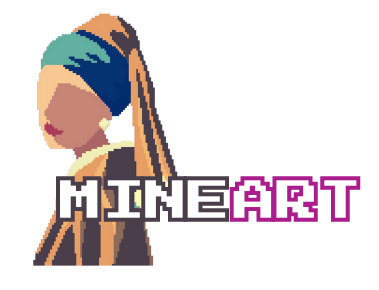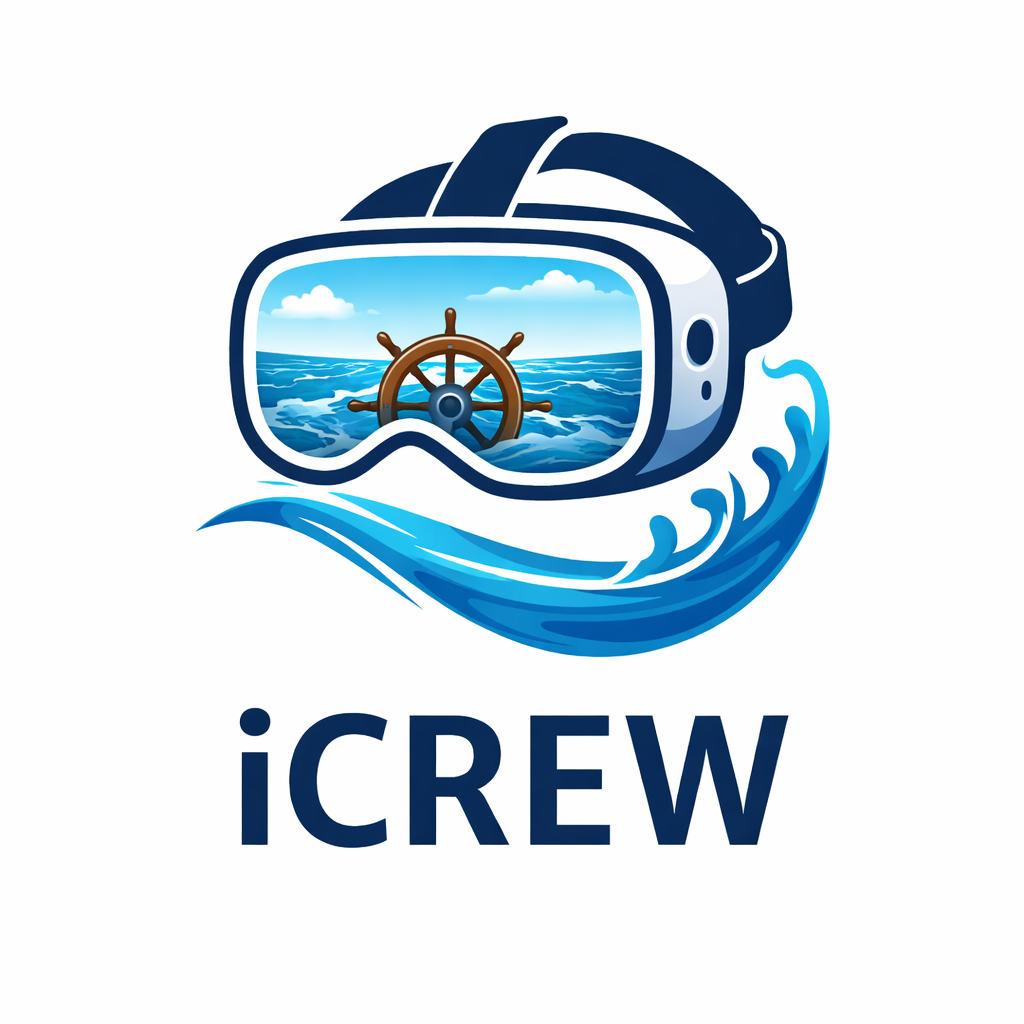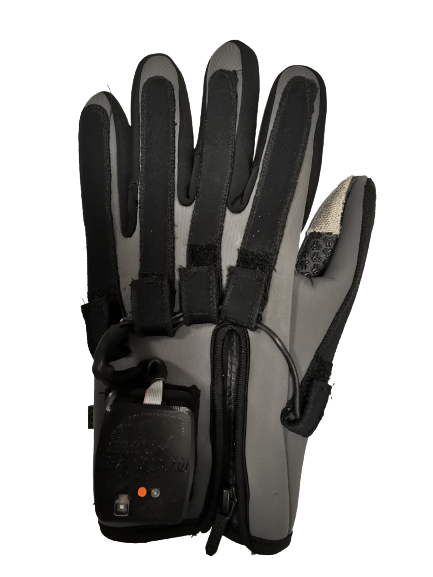


Το έργο MINEART είναι μια ευρωπαϊκή συνεργασία (Erasmus+ KA220-SCH) που στοχεύει στην ενίσχυση της καλλιτεχνικής εκπαίδευσης μαθητών πρωτοβάθμιας εκπαίδευσης, αξιοποιώντας ψηφιακά, διαδραστικά και συνεργατικά περιβάλλοντα μάθησης. Κεντρικός άξονας του έργου είναι η χρήση του Minecraft Education Edition ως εκπαιδευτικού εργαλείου για τη διδασκαλία της ιστορίας της τέχνης, των καλλιτεχνικών ρευμάτων και της πολιτιστικής κληρονομιάς των χωρών των εταίρων.
Μέσα από ένα εικονικό ψηφιακό μουσείο και παιγνιώδεις εκπαιδευτικές αποστολές, οι μαθητές εξερευνούν διαφορετικές ιστορικές περιόδους και μορφές τέχνης, αναπτύσσοντας δημιουργικότητα, συνεργατικές δεξιότητες και κριτική σκέψη. Το έργο συνδυάζει game-based learning, immersive εμπειρίες και παιδαγωγικά δομημένο περιεχόμενο, συμβάλλοντας στη σύγχρονη και καινοτόμο προσέγγιση της εκπαίδευσης μέσα από ψηφιακές τεχνολογίες.
Το έργο χρηματοδοτείται από την Ευρωπαϊκή Ένωση.


Το έργο iCREW στοχεύει στην ανάπτυξη ενός ολοκληρωμένου και καινοτόμου συστήματος εκπαίδευσης για τον χειρισμό μικρών σκαφών, αξιοποιώντας σύγχρονες τεχνολογίες Εικονικής Πραγματικότητας (VR) και προσομοίωσης. Μέσα από ρεαλιστικά σενάρια πλοήγησης, οι εκπαιδευόμενοι έχουν τη δυνατότητα να εξασκηθούν σε απαιτητικές καιρικές συνθήκες, σύνθετες καταστάσεις κυκλοφορίας και διαδικασίες ασφαλούς πρόσδεσης, χωρίς κανέναν κίνδυνο για ανθρώπινες ζωές ή εξοπλισμό.
Το σύστημα προσφέρει εμπειρία πλήρους εμβύθισης, συνδυάζοντας φωτορεαλιστικά γραφικά, πολυκαναλικό ήχο και ρεαλιστικά χειριστήρια, ώστε η εκπαίδευση να προσεγγίζει όσο το δυνατόν περισσότερο τις πραγματικές συνθήκες στη θάλασσα. Με τον τρόπο αυτό, το iCREW συμβάλλει ουσιαστικά στην αναβάθμιση της ναυτικής κατάρτισης, ενισχύοντας την ετοιμότητα και την αυτοπεποίθηση των κυβερνητών, αλλά και στη μείωση των ναυτικών ατυχημάτων που οφείλονται στην ανεπαρκή εμπειρία και εκπαίδευση.
Το έργο απευθύνεται σε σχολές εκπαίδευσης κυβερνητών μικρών σκαφών, ναυτικές ακαδημίες και φορείς επαγγελματικής κατάρτισης, φιλοδοξώντας να αποτελέσει ένα σύγχρονο, διεθνώς ανταγωνιστικό εργαλείο στον τομέα της ναυτικής εκπαίδευσης και της ψηφιακής καινοτομίας.
Το έργο iCREW χρηματοδοτείται από την Ευρωπαϊκή Ένωση – NextGenerationEU, μέσω του Εθνικού Σχεδίου Ανάκαμψης και Ανθεκτικότητας «Ελλάδα 2.0».


EpirusXRCenter operates as an open interactive center with the aim of familiarizing the public with new technologies. The Center is distinguished by its interdisciplinary nature and conducts research in Biomedical Technology, Medical Informatics, Computer Science, Telecommunications, Medicine, Psychology, and Education.
Offers interactive courses, data visualization, seminars, and conferences. Additionally, it is involved in the preservation of cultural heritage, cultural events promoting the arts The laboratory promotes collaboration between departments and various institutions.
Composed of over 50 faculty members from the University of Ioannina, with more than 10 individuals working at the center, the XRCenter plays a pivotal role in the scientific and cultural life of the region, with facilities that have so far been lacking in our institution.
The XRCenter (MIS: 5047221) was implemented under the Competitiveness, Entrepreneurship and Innovation (EPANEK), ESPA 2014 – 2020.


The MEGATRON project represents a pioneering service in the field of motor rehabilitation, focusing on the development and use of innovative robotic systems for walking. These systems integrate advanced motion control algorithms that optimize the effectiveness of applied therapeutic protocols. The recording and analysis of walking characteristics also provide deep scientific insights for the evolution and management of various conditions, from neurological diseases to cardiovascular issues.
Integrating technologies such as tele-rehabilitation through multimedia and virtual reality, the MEGATRON project leverages the latest advances in information and communication technologies. The proposed acquisition of a gait analysis system aims to create a comprehensive human movement database, serving both the scientific and medical communities. This platform will facilitate timely diagnosis and selection of appropriate treatments, and will also contribute to other research applications such as human recognition and the development of tele-rehabilitation games.
The implementation of this system in the Clinical Physical Medicine and Rehabilitation Center will provide valuable services to patients with gait problems, enhancing their quality of life and ensuring improved management of their health issues.
The MEGATRON project was implemented under the Competitiveness, Entrepreneurship, and Innovation (EPANEK) program, ESPA 2014 – 2020.


The aim of the project is to create an automated system for measuring the ballooning degeneration of liver cells using patient biopsies. This tool will provide an objective and fully quantified measurement of liver cell ballooning to support the pathologist's decision regarding the current condition of the patient. Additionally, the goal includes the integration/interoperability of this tool with two other biopsy image processing and quantification tools for measuring collagen and fat in the liver. By achieving this goal, a comprehensive software tool will enable the quantification of all medical findings in liver biopsies.
Non-invasive image processing techniques are applied for evaluating liver findings; however, their reliability and accuracy are limited. In contrast, biopsy image analysis is increasingly proving to be the more reliable option. The pathologist assesses the proportion of findings by observation under the microscope to evaluate the patient's condition. Based on the observation, the pathologist determines the stage of disease progression on a multi-stage scale (e.g., 3-stage scales). In clinical practice, this process is time-consuming and labor-intensive, with the risk of incorrect subjective judgment by the specialist.
The xBallon was implemented under the Operational Program Epirus 2024 - 2020, ESPA 2014 - 2020.


Parkinson's disease is a chronic neurodegenerative condition that affects more than 2 out of 1,000 people in Europe and Greece. As a neurodegenerative disease, it gradually impacts the motor, cognitive, and emotional state of patients, leading to a progressive loss of bodily functions. Its progression varies for each patient, depending on multiple factors, such as the age of onset, the patient's medical history and individual characteristics, and the collaboration with medical professionals to administer the most effective treatment. It typically manifests after the age of 60, although it is increasingly seen in younger individuals (ages 30-40). Nevertheless, over 80% of patients are between the ages of 70 and 80. According to the same data, it affects men and women at roughly the same rate. Due to the growing elderly population in Greece, a significant increase in the number of patients diagnosed with Parkinson's or Parkinsonian syndromes is expected in the coming years, while the number of specialized clinics and doctors for Parkinson's disease in Greece, and globally, remains small and unable to meet even the current demand for patient monitoring and treatment.
The SmartGlove introduces the concept of remote monitoring of a patient's motor condition at home, as well as the objective evaluation of their symptoms, making it a valuable tool for supporting medical practice and providing better quality healthcare to patients. It is a comprehensive system consisting of both an innovative device (SmartGlove) and innovative software. Its use will assist in the objective assessment of the patient's condition and the appropriate adjustment of their treatment based on the individualized progression of the disease and their personal characteristics.
The initial idea won the innovation award at the MIT Health and Wellness Innovation 2013 competition , where it participated as a research proposal under the title AEON Health. Currently, the research team has developed the second improved version of the SmartGlove, as well as a fully integrated system. Additionally, the team has already secured a patent from the Industrial Property Organization, which demonstrates the project's high level of innovation.
The SmartGlove was implemented under the Operational Program Epirus 2024 - 2020, ESPA 2014 - 2020.


The aim of the project is to create a platform to support the diagnosis and staging of diseases based on patient biopsies. The platform is intended to be functional, efficient, and not limited to biopsies from specific organs or specific disease fields, allowing it to be trained by specialists for any field as needed. Diagnosis and staging support will be based on the digitized image of the patient's biopsy, which may come from routine microscopes or new whole-slide scanners.
As part of the project, an intelligent information system will be developed that, by utilizing new techniques combining Deep Learning and image processing, will automatically highlight areas of interest for the specialist and quantify them. The platform will be supported by a database of histological biopsy images from various medical fields, intended to serve as a training dataset for the intelligent system. The initial goal is to offer the platform as a B2B service to medical units, with the potential to develop a research ecosystem for processing and utilizing biopsies in the future.
The Deep in Biopsies project was implemented under the Operational Program Competitiveness, Entrepreneurship, and Innovation, ESPA 2014 – 2020.


The objective of the project is to develop innovative methodologies and integrated security solutions for the protection of Internet of Medical Things (IoMT) technologies used in real-time healthcare services, based on the following principles.
The project will focus on two existing commercial solutions from the partners: a drug infusion pump from Micrel and a sleep study system from the OLYMPION clinic, in order to study and enhance their security and functionality.
Η Χρηματοδότηση υλοποιείται στο πλαίσιο της Δράσης ΕΡΕΥΝΩ – ΔΗΜΙΟΥΡΓΩ - ΚΑΙΝΟΤΟΜΩ και συγχρηματοδοτήθηκε από την Ευρωπαϊκή Ένωση και εθνικούς πόρους μέσω του Ε.Π. Ανταγωνιστικότητα, Επιχειρηματικότητα & Καινοτομία (ΕΠΑνΕΚ) (κωδικός έργου: T1ΕΔΚ-01958)


During a patient’s healthcare and treatment period in the hospital, continuous monitoring of the patient’s vital signs is essential, along with immediate notifications to the medical staff. Key parameters for monitoring in a hospital setting include heart rate, respiratory rate, oxygen saturation, temperature, changes in systolic blood pressure, movement and posture, as well as the patient's position in space. This project proposes an innovative system with the capability to monitor these vital signs in near-real-time using a comfortable, wearable device on the forearm or wrist.
In the proposed system, data is transferred to a central base station—Support Platform—through a Wireless Sensor Network, using Ad Hoc Networking techniques and multiple relay nodes. These relay nodes are responsible for the lossless transmission of data from the wearable recording device to the base station. The data is stored in databases and processed using intelligent algorithms in a cloud-based application environment. Real-time early warning notifications are automatically sent to doctors or nurses on portable devices, allowing them to intervene much earlier than would be possible with manual vital signs monitoring. By grouping patients according to risk, doctors and nurses can quickly identify those who need the most attention.
The HuMORIST project was implemented under the Operational Program Epirus 2024 - 2020, ESPA 2014 - 2020


EpirusXRCenter operates as an open interactive center with the aim of familiarizing the public with new technologies. The Center is distinguished by its interdisciplinary nature and conducts research in Biomedical Technology, Medical Informatics, Computer Science, Telecommunications, Medicine, Psychology, and Education.
Offers interactive courses, data visualization, seminars, and conferences. Additionally, it is involved in the preservation of cultural heritage, cultural events promoting the arts The laboratory promotes collaboration between departments and various institutions.
Composed of over 50 faculty members from the University of Ioannina, with more than 10 individuals working at the center, the XRCenter plays a pivotal role in the scientific and cultural life of the region, with facilities that have so far been lacking in our institution.
The XRCenter (MIS: 5047221) was implemented under the Competitiveness, Entrepreneurship and Innovation (EPANEK), ESPA 2014 – 2020.


The MEGATRON project represents a pioneering service in the field of motor rehabilitation, focusing on the development and use of innovative robotic systems for walking. These systems integrate advanced motion control algorithms that optimize the effectiveness of applied therapeutic protocols. The recording and analysis of walking characteristics also provide deep scientific insights for the evolution and management of various conditions, from neurological diseases to cardiovascular issues.
Integrating technologies such as tele-rehabilitation through multimedia and virtual reality, the MEGATRON project leverages the latest advances in information and communication technologies. The proposed acquisition of a gait analysis system aims to create a comprehensive human movement database, serving both the scientific and medical communities. This platform will facilitate timely diagnosis and selection of appropriate treatments, and will also contribute to other research applications such as human recognition and the development of tele-rehabilitation games.
The implementation of this system in the Clinical Physical Medicine and Rehabilitation Center will provide valuable services to patients with gait problems, enhancing their quality of life and ensuring improved management of their health issues.
The MEGATRON project was implemented under the Competitiveness, Entrepreneurship, and Innovation (EPANEK) program, ESPA 2014 – 2020.


The aim of the project is to create an automated system for measuring the ballooning degeneration of liver cells using patient biopsies. This tool will provide an objective and fully quantified measurement of liver cell ballooning to support the pathologist's decision regarding the current condition of the patient. Additionally, the goal includes the integration/interoperability of this tool with two other biopsy image processing and quantification tools for measuring collagen and fat in the liver. By achieving this goal, a comprehensive software tool will enable the quantification of all medical findings in liver biopsies.
Non-invasive image processing techniques are applied for evaluating liver findings; however, their reliability and accuracy are limited. In contrast, biopsy image analysis is increasingly proving to be the more reliable option. The pathologist assesses the proportion of findings by observation under the microscope to evaluate the patient's condition. Based on the observation, the pathologist determines the stage of disease progression on a multi-stage scale (e.g., 3-stage scales). In clinical practice, this process is time-consuming and labor-intensive, with the risk of incorrect subjective judgment by the specialist.
The xBallon was implemented under the Operational Program Epirus 2024 - 2020, ESPA 2014 - 2020.


Parkinson's disease is a chronic neurodegenerative condition that affects more than 2 out of 1,000 people in Europe and Greece. As a neurodegenerative disease, it gradually impacts the motor, cognitive, and emotional state of patients, leading to a progressive loss of bodily functions. Its progression varies for each patient, depending on multiple factors, such as the age of onset, the patient's medical history and individual characteristics, and the collaboration with medical professionals to administer the most effective treatment. It typically manifests after the age of 60, although it is increasingly seen in younger individuals (ages 30-40). Nevertheless, over 80% of patients are between the ages of 70 and 80. According to the same data, it affects men and women at roughly the same rate. Due to the growing elderly population in Greece, a significant increase in the number of patients diagnosed with Parkinson's or Parkinsonian syndromes is expected in the coming years, while the number of specialized clinics and doctors for Parkinson's disease in Greece, and globally, remains small and unable to meet even the current demand for patient monitoring and treatment.
The SmartGlove introduces the concept of remote monitoring of a patient's motor condition at home, as well as the objective evaluation of their symptoms, making it a valuable tool for supporting medical practice and providing better quality healthcare to patients. It is a comprehensive system consisting of both an innovative device (SmartGlove) and innovative software. Its use will assist in the objective assessment of the patient's condition and the appropriate adjustment of their treatment based on the individualized progression of the disease and their personal characteristics.
The initial idea won the innovation award at the MIT Health and Wellness Innovation 2013 competition , where it participated as a research proposal under the title AEON Health. Currently, the research team has developed the second improved version of the SmartGlove, as well as a fully integrated system. Additionally, the team has already secured a patent from the Industrial Property Organization, which demonstrates the project's high level of innovation.
The SmartGlove was implemented under the Operational Program Epirus 2024 - 2020, ESPA 2014 - 2020.


The aim of the project is to create a platform to support the diagnosis and staging of diseases based on patient biopsies. The platform is intended to be functional, efficient, and not limited to biopsies from specific organs or specific disease fields, allowing it to be trained by specialists for any field as needed. Diagnosis and staging support will be based on the digitized image of the patient's biopsy, which may come from routine microscopes or new whole-slide scanners.
As part of the project, an intelligent information system will be developed that, by utilizing new techniques combining Deep Learning and image processing, will automatically highlight areas of interest for the specialist and quantify them. The platform will be supported by a database of histological biopsy images from various medical fields, intended to serve as a training dataset for the intelligent system. The initial goal is to offer the platform as a B2B service to medical units, with the potential to develop a research ecosystem for processing and utilizing biopsies in the future.
The Deep in Biopsies project was implemented under the Operational Program Competitiveness, Entrepreneurship, and Innovation, ESPA 2014 – 2020.


The objective of the project is to develop innovative methodologies and integrated security solutions for the protection of Internet of Medical Things (IoMT) technologies used in real-time healthcare services, based on the following principles.
The project will focus on two existing commercial solutions from the partners: a drug infusion pump from Micrel and a sleep study system from the OLYMPION clinic, in order to study and enhance their security and functionality.
Η Χρηματοδότηση υλοποιείται στο πλαίσιο της Δράσης ΕΡΕΥΝΩ – ΔΗΜΙΟΥΡΓΩ - ΚΑΙΝΟΤΟΜΩ και συγχρηματοδοτήθηκε από την Ευρωπαϊκή Ένωση και εθνικούς πόρους μέσω του Ε.Π. Ανταγωνιστικότητα, Επιχειρηματικότητα & Καινοτομία (ΕΠΑνΕΚ) (κωδικός έργου: T1ΕΔΚ-01958)


During a patient’s healthcare and treatment period in the hospital, continuous monitoring of the patient’s vital signs is essential, along with immediate notifications to the medical staff. Key parameters for monitoring in a hospital setting include heart rate, respiratory rate, oxygen saturation, temperature, changes in systolic blood pressure, movement and posture, as well as the patient's position in space. This project proposes an innovative system with the capability to monitor these vital signs in near-real-time using a comfortable, wearable device on the forearm or wrist.
In the proposed system, data is transferred to a central base station—Support Platform—through a Wireless Sensor Network, using Ad Hoc Networking techniques and multiple relay nodes. These relay nodes are responsible for the lossless transmission of data from the wearable recording device to the base station. The data is stored in databases and processed using intelligent algorithms in a cloud-based application environment. Real-time early warning notifications are automatically sent to doctors or nurses on portable devices, allowing them to intervene much earlier than would be possible with manual vital signs monitoring. By grouping patients according to risk, doctors and nurses can quickly identify those who need the most attention.
The HuMORIST project was implemented under the Operational Program Epirus 2024 - 2020, ESPA 2014 - 2020

© HCILAB www.dit.uoi.gr 2026. Με την επιφύλαξη παντός νομίμου δικαιώματος.
Implemented by the Konstantinos Sakkas
Created with Royal Elementor Addons